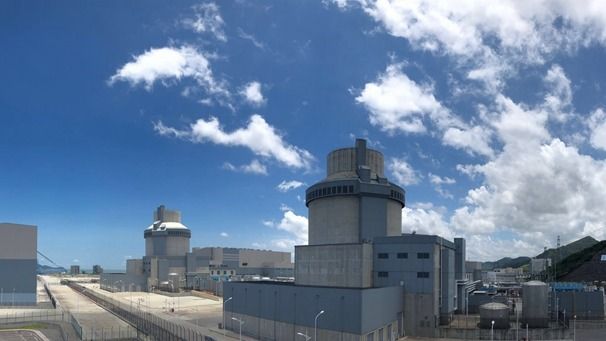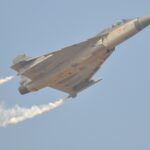The future of nuclear energy depends on China
By Dawn Stover | October 2, 2018
 AP1000 reactors at the Sanmen nuclear power plant in China. Credit: SNPTC
AP1000 reactors at the Sanmen nuclear power plant in China. Credit: SNPTC
“The world nuclear industry cannot develop without China’s input,” said Jade Huang, Vice-Secretary General of the China-based international nonprofit organization International Forum for Clean Energy, last month in London. She spoke at the unveiling of the World Nuclear Industry Status Report 2018, which will be rolled out in the United States next week.
The annual publication, which offers an independent and hard-nosed assessment of the nuclear industry, reported that six of the nine reactors that started up during 2017 and the first half of 2018 were in China. (There were also two reactor startups in Russia and one in Pakistan.) China not only dominated the numbers but also led advances in technology—with the first EPR third-generation reactor to be connected to the grid, and the first AP1000 third-generation reactor to be completed.
Outside China, global nuclear power generation declined for the third year in a row. Even within China, new construction has been at a standstill since the end of 2016, and at least half of the reactors under construction are behind schedule. (Meanwhile, recent reports by the BBC, Quartz, and other media outlets suggest that construction has resumed at hundreds of Chinese coal-fired power stations, in local defiance of the central government’s attempts to cancel plants and curb greenhouse gas emissions.)
Almost a third of the countries that have nuclear power are now generating more electricity from non-hydro renewables (i.e. wind and solar) than from nuclear power. Absent the development of smaller, cheaper modular reactors—an unlikely scenario in the near future—the nuclear industry may be circling the drain.
The 2018 report takes a look, for the first time, at whether military interests serve as one of the drivers for the “odd persistence” of nuclear power. “Nuclear weapon states remain the main proponents of nuclear power programs,” the authors note.
Editor’s note: The Global Nuclear Power Database—an interactive visualization of world nuclear power reactor construction from 1951 to Jan. 1, 2017—can be found here.
Publication Name: World Nuclear Industry Status Report
To read what we're reading, click here
Together, we make the world safer.
The Bulletin elevates expert voices above the noise. But as an independent nonprofit organization, our operations depend on the support of readers like you. Help us continue to deliver quality journalism that holds leaders accountable. Your support of our work at any level is important. In return, we promise our coverage will be understandable, influential, vigilant, solution-oriented, and fair-minded. Together we can make a difference.
Keywords: China, coal, nuclear weapons, renewables
Topics: Climate Change, Nuclear Energy, Nuclear Risk, Nuclear Weapons, What We’re Reading
















I believe all this to be true. There are thousands of people who have died from storms and fire. All over the world it is happening and people are forced out of their homes